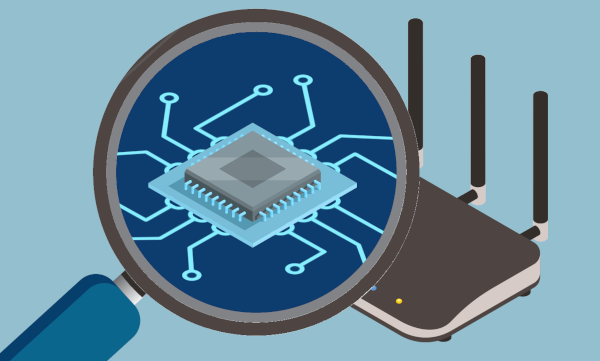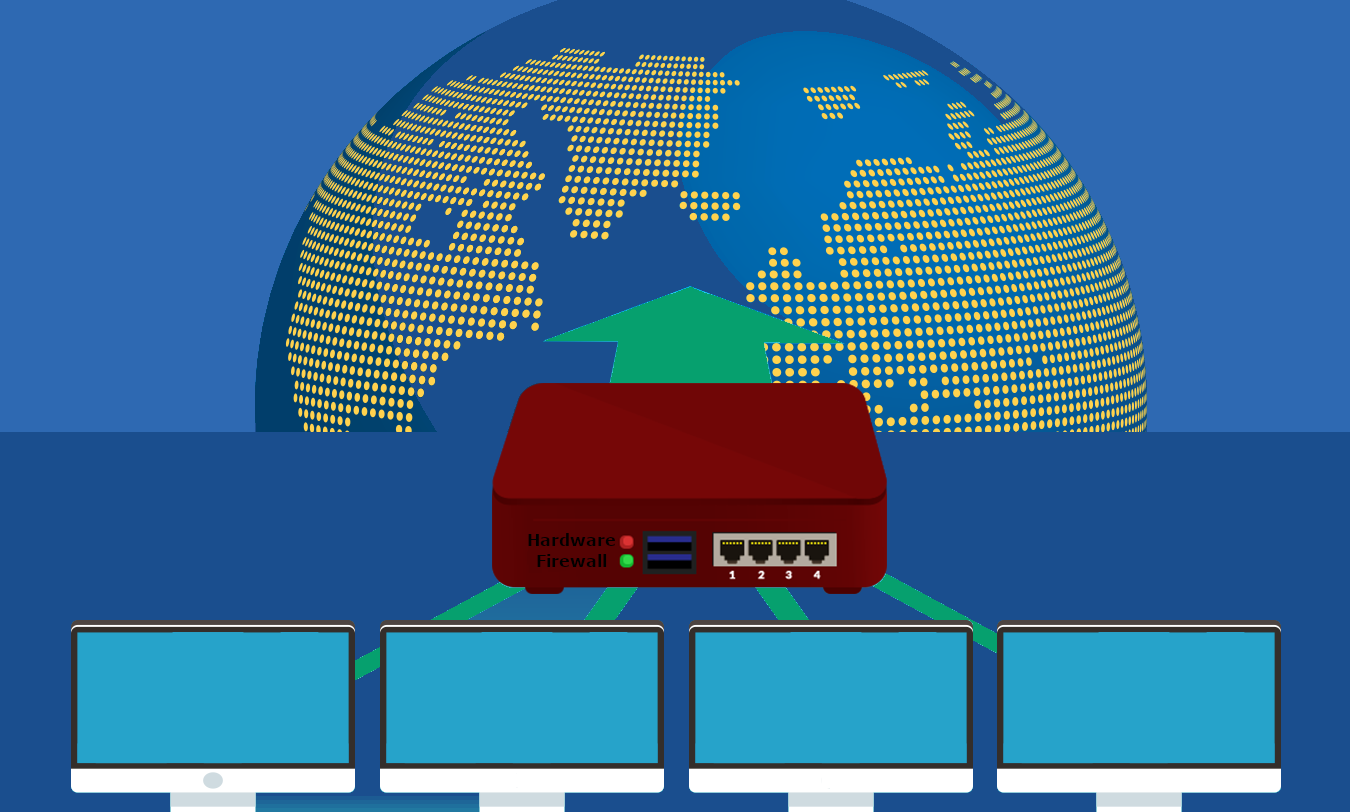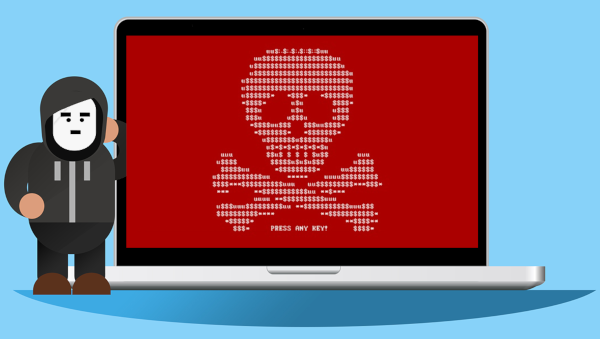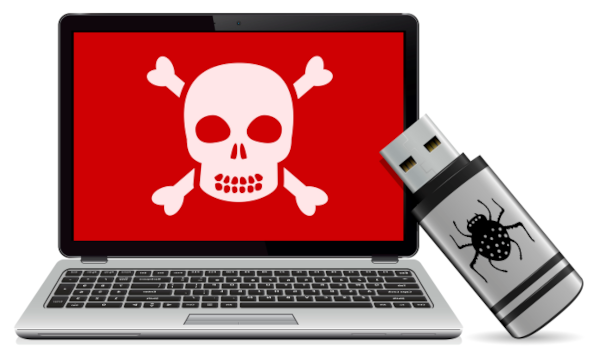If you ever come across a USB or thumb drive, that you do not recognize, leave it where it is or destroy it. It may be one you found on the ground outside your office, in a public place or even one sent to you out of the blue. Yes you may be curious and want to return it to its owner or see what it contains but the risks are too high. Continue reading
Tag Archives: hacking
Keeping Your Hardware Safe and Secure

Most of us can differentiate between hardware and software. But how many know what firmware refers to? More importantly, is your business securing its firmware against security vulnerabilities? Continue reading
Why You Need Both Software and Hardware Firewalls

When it comes to internet security, most businesses do not have the protection they really need. Many people rely on software products that bundle antivirus and firewall protection into one, and many users think this is enough – but it isn’t. Continue reading
3 Cyber Attacks That Are Putting Your Business at Risk
Cyberattacks and data breaches are happening 24/7 all around the world and no one is immune. Your business needs to protect its networks and systems and secure its sensitive and confidential information. But how much do you know about the types of cybercriminal out there. This article discusses the biggest threats and what the bad hackers are after. Continue reading
8 Cyber Security Tips To Help Secure Your Business

Cyber security and Internet attacks has been all over the Australian media recently after the recent press conference from The Prime Minister – Scott Morrison. During the press conference, he mentioned that Australian Businesses, government agencies and other entities are under an active cyber attack campaign by a “state-based actor”. Scott didn’t elaborate too much on who they are but urged businesses to check and if needed increase their cyber security. Continue reading
How the Bad Guys Get Your Passwords
 Passwords are an essential part to your businesses cybersafety. If, like the rest of us, you have dozens of passwords to remember, you might take shortcuts. Taking advantage of this type of attitude is one way bad guys access your passwords. Continue reading
Passwords are an essential part to your businesses cybersafety. If, like the rest of us, you have dozens of passwords to remember, you might take shortcuts. Taking advantage of this type of attitude is one way bad guys access your passwords. Continue reading
The Dark Web and How it Can Affect Your Business

Every Internet user should already know that the internet has many people looking to exploit the Web for ill intent. These people congregate on the Dark Web and small businesses need to understand what it is and what the risks are. Continue reading
Why Hackers Target Small Businesses

Hackers today have many ways in which to attack small businesses and business owners. Many hackers attempt to gain information or attack businesses with malware, viruses or phishing attacks. One or more of these techniques can be combined with gaining physical access in an attempt to steal information and data from vulnerable firms.
This articles will help you identifying precisely how criminals target businesses to help protect you from the most devastating attacks out there.
Have You Been Hacked?
 Being hacked is the single biggest fear for most computer users. Many people believe the first sign of strange behavior or errors on their PC is a sign of being hacked. But are hackers really inside your machine, roaming around madly and stealing your information? Or should we be on the lookout for other more subtle signs? What does being hacked really look like and what can I do to help prevent it happening?
Being hacked is the single biggest fear for most computer users. Many people believe the first sign of strange behavior or errors on their PC is a sign of being hacked. But are hackers really inside your machine, roaming around madly and stealing your information? Or should we be on the lookout for other more subtle signs? What does being hacked really look like and what can I do to help prevent it happening?
There is an important distinction to make between being attacked by a hacker and being infected with a virus or malware. Virus software and malware are automated processes designed to damage your system and / or steal your data. There are of course ways that we can defeat these processes, but what if we are instead being hacked and what are some of the signs?
Passwords not working
One of the first steps a hacker might take is to change your computers login passwords. By doing so, not only do they ensure future access to the machine, they prevent you from accessing the system to stop them. For the hacker, this is a crucial step that keeps them in control. With this in mind, we always want to make sure to keep on top of our own login details and how often we change them.
Security notifications from online services
A lot of online services track which device and location you logged into your account from last. If your account is accessed from a new device or a different country it might trigger an automated email or SMS asking if this new login is from you.
If you have just logged into a service from a new computer, tablet, or phone; receiving an email that asks “hey, is this you?” need not be cause for alarm. If you haven’t, it may be time to investigate further. This feature is a very important part of information security and may be a key first step to identify someone else gaining access to your account.
Bank accounts missing money or strange transactions
The end goal for the majority of today’s hackers is typically to profit from their crimes by taking money from people online. As such, it pays to keep a regular eye on your financial transactions to make sure you know what money is coming and going from your account.
You may see a large sum missing where hackers have attempted to take as much as they can in a single transaction. On the other hand unknown or unusual small transactions may be attackers testing the login details they have, to confirm that they work.
Loss of mobile phone or land line connectivity
Phone interruption is a symptom that few people expect but can occur when hackers attack. Many banks and online services use a security feature known as two-factor or multi factor authentication (2FA or MFA). They do this by sending a code to your phone or app when you log in, you then have to enter this code to confirm who you are.
Hackers can try to work around this by calling your phone provider to report your phone as lost or stolen. During this call, they will request your phone number be transferred to a new sim card or redirected to another number that they control. When your bank sends its regular two-factor authentication code to the number registered, it goes instead to the hacker who then can log in. From your perspective the phone service will simply stop working, so if this happens contact your provider ASAP.
Social engineering
Another technique that may not even include a technical method is called social engineering. Social engineering is when hackers try to obtain confidential information by manipulating people to freely give them this information. This can be done in many different ways. Some examples are:
- A strangers phones your office and may pretend to be a customer or supplier but asks for personal or confidential information.
- A person claiming to be a supplier contacts you and asks you to change the bank account you send payments to.
- Some one attends your premises for some reason but you have no prior knowledge of who they are or why they are they are requesting access.
- Some one phones and claims to be from the technical department of your ISP or maybe even Microsoft and requests remote access to your computer.
- You receive an email claiming to be from the boss or management asking you to do something which doesn’t seem right – like purchasing iTunes vouchers or asking to authorize payment to a new supplier.
Keeping vigilant and maintaining security
These are only some of the techniques that hackers can try to use to gain access to your systems and accounts. It pays to be extra vigilant and pay close attention to the signs and signals that indicate you may have been hacked. It may als
If you suspect that you might have been hacked, or would like help to prevent hackers in future and are located in South Australia, give us at 08 8326 4364 and we will improve your security.
The True and Unexpected Costs of Being Hacked
 There are the normal costs everyone associates with a computer breach, like employee downtime and the costs associated with getting your network and computers fixed. But really, most businesses that haven’t been hit with a security incident view it as more of an inconvenience than a bottom-line cost. For those businesses who have come out the other side though, it’s a very different story. They know from firsthand experience that the hidden and ongoing costs of a data breach can be crippling and that IT security exists to protect your business on multiple levels. All those surprise costs that spiral out of control are why most businesses close down after a cyber-attack. Here are a few of the hard, but common cold hard realities of life after a hack.
There are the normal costs everyone associates with a computer breach, like employee downtime and the costs associated with getting your network and computers fixed. But really, most businesses that haven’t been hit with a security incident view it as more of an inconvenience than a bottom-line cost. For those businesses who have come out the other side though, it’s a very different story. They know from firsthand experience that the hidden and ongoing costs of a data breach can be crippling and that IT security exists to protect your business on multiple levels. All those surprise costs that spiral out of control are why most businesses close down after a cyber-attack. Here are a few of the hard, but common cold hard realities of life after a hack.
Raiding the budget to reduce downtime
From the moment a cyber-attack compromises your system, things can get expensive, and the longer the attack goes, the more it costs. Latest statistics reveal most breaches aren’t identified for around 191 days and then it can take on average another 66 days to fix and contain the damage – during this time you are cleaning PCs, mobile devices, laptops, servers and even entire networks. Add to this the fees for IT professionals to fix everything up, the costs for new hardware and software to help prevent future incidents and all the hours/days/weeks when your business is struggling with downtime, businesses will quickly exhaust any emergency funds they have.
The long arm of the law
Depending on what data was stolen and how you handled the situation, you could be liable for fines into the millions. If medical data or legal files are leaked a particularly messy scenario may occur with fines coming from multiple sources.
New privacy laws also mean businesses are liable for large fines if they don’t disclose a data breach. Where this gets trickier is that the burden is on your business to know exactly what data has been stolen or illegally accessed, so that you can report it before the fines stack up. This means that even if you were able to fix up the systems yourself, you will still need to hire an expert who can identify exactly data what the hackers took or accessed.
Customer retention measures
In a double crush to your bottom line, not only does your business bear the cost of fixing the hack and your future income takes a hit as customers lose trust and leave. To offset this, many businesses need to spend more on advertising and public relations just to ensure they survive to fight another day.
The data breach disclosure may still come up in search results for many years to come. The more negative publicity your breach attracts, the more you’ll need to spend on customer retention.
All your secrets exposed
While you may not have high level secrets to protect, your business does have data that you would like to keep to yourself. Hackers love going after those juicy tidbits, and the more closely you guard them, the more attractive they are. While large corporations would be big enough to keep their competitive edge after the breach, your business success relies on at least some information staying secret (databases, client info, financial records etc).
But simply avoiding a breach doesn’t cost much at all…
The thing is, it’s not expensive to stay on top of it all and keep your business protected. For a low monthly fee, we can reverse the entire scenario and secure your systems against the unknown. That means no need to raid other department budgets in a panic, pay crippling fines and make embarrassing public announcements.
DP Computing can help with making sure your systems have the latest security patches and your anti-virus knows the latest tricks to watch for. Our technicians implemented a firewall or UTM device to build a virtual fortress around your business that keeps the bad guys out while letting you thrive. Whatever your needs are, both now and moving ahead, we’re here to help keep you safe.
Ready to secure your business against breaches? Give us a call on 08 8326 4364 or via email at
su*****@dp*********.au
.


